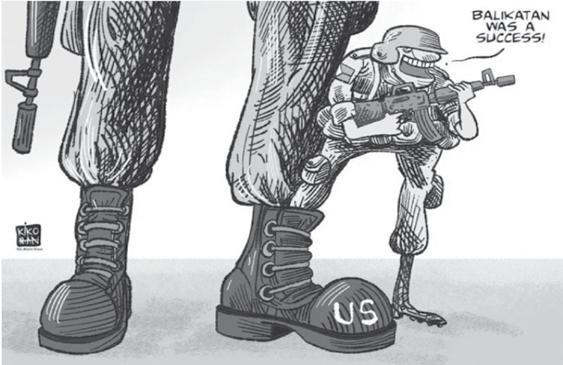
2 minute read
Too much complaining
periodic rituals of elections, retreat into states of passivity and detachment, unless something personal hit them that they would demand action from the government. Only a small minority would actively participate in political activity beyond voting during elections. But this was before the birth of social media, where people did not have access to platforms where they could express their views.
The era of social media has reframed the way people do politics. While it certainly amplified the role of optics and narratives, it also amplified political noise. The noisy minority effectively found an avenue to project their voices, and this created a mirage of a groundswell of opinion that, without social media, would have been drowned by the apathy of the greater number of people.
Advertisement
Social media has become an effective avenue to make politics accessible. However, it also became the launching pad for the propagation and growth of a kind of politics that is driven by hatred and fear. Social media traffic is characterized by people who become peddlers of anger and intrigue, who feed the gripes of the minority, even if it means spreading lies, misinformation and disinformation. It became worse when what used to be a vocation that would require dedication, where activists are committed to a cause, the monetization of social media engagements has produced a new breed of noisemakers. These are in the form of social media vloggers who turned political commentary into an income-generating commodity. They effectively become merchants of discord, anger and fear. And thus, we end up with a highly toxic political landscape, where what can be seen, heard and read in social media is dominated by rants and complaints, giving the impression of an utter system failure and a government at the precipice of collapse. This, however, does not add up when results of scientific surveys reveal a government earning high trust, approval and satisfaction ratings from four out of five Filipinos. The voice of the noisy minority, those driven by blind loyalties and who thrive on intrigue and discord, and whose politics subsists on anger and fear, take control, and are in command of the production of political discourse that we mistake to be the pulse of the masses. Yet, it is all a mirage. Unfortunately, their noisy voices are the ones that are picked up not only by mainstream media, but also by politicians who either fear them, or suck up to them to advance their political careers.
It is in this political landscape that our policy decisions are now directed by a noisy minority, and where government initiatives sink or swim on the basis of the decibel of their noise. We saw the initiative of modernizing our jeepneys being tanked not on the basis of reason but on the basis of accommodating sectoral interests over the greater good of protecting human and environmental health. I have my own issues with the move to replace our carbon-emitting jeepneys, but these are more on issues of unaffordability as well as the unimaginative design of turning what used to be a cultural icon into a boring boxlike contraption. But what we got instead is the more convenient and populist response of shelving the proposal until further discussion, which in our political discourse could mean putting it on hold forever.
Then we have the SIM card registration initiative, which is a rational response to the increasing incidence of fraud using unregistered mobile devices. Again, because of internet-generated noise, the government caved, and gave fraudsters a reprieve.
What we end up with is not the image of a government that is responding to people’s concerns and advancing public good, but a political culture that unleashes internet anger and fear being spoiled by a government that bows to their noise, and turns public good into a negotiable, fluid and uncertain construct. We now have turned public interest away from a landscape dominated by reason and informed decisions, into one that is overwhelmed by internet noise. We are turning our democracy into a noisy marketplace of rants and complaints. (ManilaTimes.net)
* * * The opinions, beliefs and viewpoints expressed by the author do not necessarily reflect the opinions, beliefs and viewpoints of the Asian Journal, its management, editorial board and staff.






